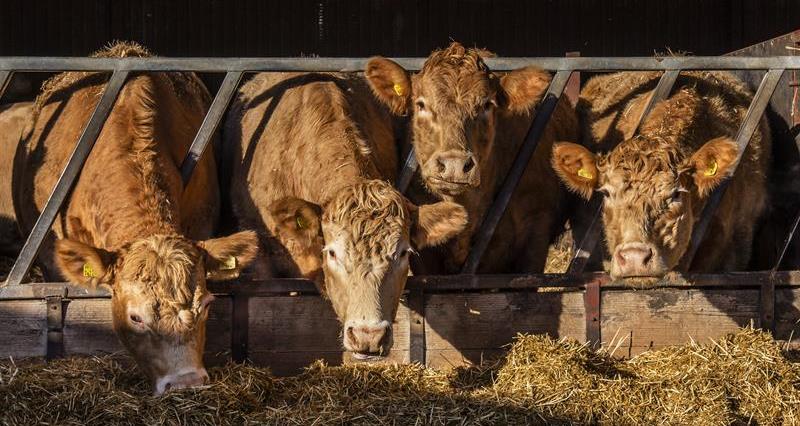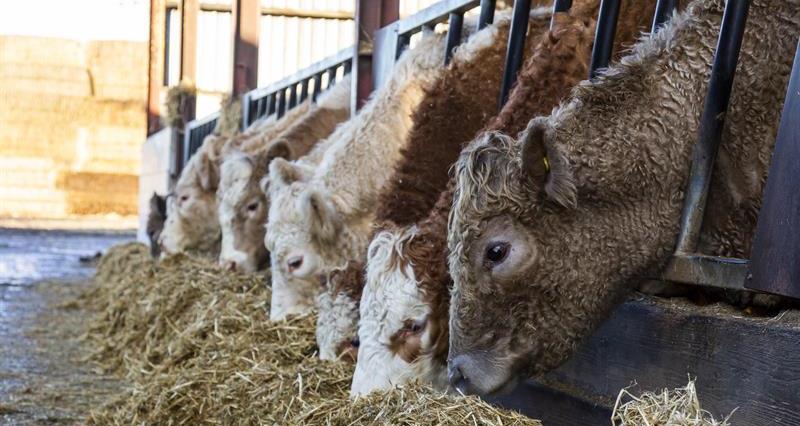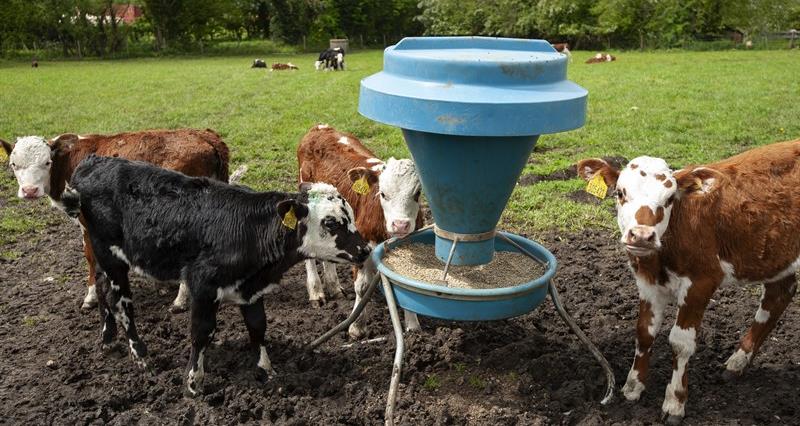Last week, the House of Lords’ Environment and Climate Change Committee published its report evaluating the UK’s progress towards the Global Methane Pledge goal to cut methane at least 30% by 2030.
Here, the NFU’s team of expert advisers take a deep dive into the recommendations and where they apply to British agriculture.
Key recommendations impacting members
The Environment and Climate Change Committee's report – ‘Methane: keeping up momentum’ – says the UK must keep up momentum on cutting methane emissions at home and demonstrate international leadership. It recommends the government should:
- publish a 2030 methane action plan.
- monitor developments in methane mitigation technologies, considering costs and benefits, including feed additives, selective breeding, and animal health.
- adopt measures to increase slurry grant uptake.
- consider how ELMs can be used to incentivise methane mitigation.
- continue working on improving the reliability and accuracy of on-farm emissions calculators.

House of Lords says UK must 'keep up momentum' on cutting methane emissions
Leadership and communication
The report calls for increased momentum in domestic methane reduction. A primary recommendation from the report is for the government to publish a 2030 methane action plan outlining priority actions and expected emissions reduction from each sector as well as the costs and benefits of action and inaction.
In line with feedback from the NFU, peers recommend that the government must continue to work with the industry and individual farmers to communicate clearer guidance and strategies concerning methane mitigation.
This recommendation is a step in the right direction but falls short of a commitment to consult and collaborate with the industry to develop guidance and strategies.
Moreover, the report recommends that the government should contextualise methane mitigation policy within wider economic, development and international trade conditions as well as other priorities like food security, competitiveness and food prices.
The report highlights a red meat border adjustment mechanism as an example of a potential policy solution.
Technologies
The report emphasises the use of mitigation technologies as ‘low-cost, long-term’ solutions. This includes a strong focus on feed additives, with other technologies including selective breeding and improvements in animal health and productivity.
Moreover, the report recognises that the cost of these solutions should be born across the supply chain as well as the need for greater data and guidance about their use, costs and benefits.
These recommendations are in line with evidence provided by the NFU, although the report could go further to outline the role the government should play in incentivising measures to increase uptake, importance of long-term investments in productivity and the role of the government in ensuring supply chains are fair.
Moreover, while the report urges the government to affirm its support for the Dairy Demonstrator project, it fails to link other existing projects with innovative solutions such as the potential of the LIS (Livestock Information Service) to bolster productivity through the collection of statutory and non-statutory genetic data – an area where the NFU sees great potential.
A significant gap in the recommendations concerns government support for labour upskilling which will facilitate the implementation of these new technologies.
Slurry management
The report recognises that current grants for AD (anaerobic digestors) are not sufficient for increasing uptake because of the rigidity of grant conditions and issues with permissions at a local authority level.
Peers call on the government to address these concerns, however there is a lack of details surrounding how they fix these issues, for example the need for an accommodating and responsive planning systems and the need to invest in rural infrastructure.
Moreover, recommendations should have reflected the additional value of small-scale AD plants in producing energy and fertiliser.
The report should have gone further to recommend grants for alternative slurry management technologies. It is also important to note that beef and sheep farm generally don’t collect slurry and therefore this will have limited impact on these businesses.
Land management
The report recommends the need to engage with farmers and gather evidence on the climate impacts of low-input grassland and forestry, alongside research on the carbon cycle, accounting for impacts on biodiversity and other climate impacts.
Moreover, the report recognises the limitations of the ELMs schemes, calling government to explore how they could be a tool for incentivising methane mitigation as provisioned in the 2020 Agriculture Act.
There could be room to build on this recommendation and identify other opportunities to incentivise GHG emissions reduction while also investing in the economic stability of the sector, such as through targeted incentives in the tax system.
Measurement
The report suggests that aggregate national figures for methane emissions are “reasonably accurate”. However, it does recognise the need for better quality emissions data from individual farms through on-farm emissions calculators, to improve the accuracy of and confidence in the UK’s National Inventory Report.
To deliver this, peers recommend further research into measurement technologies and more comprehensive measurement, monitoring, reporting and verification regulation.
The report contemplates the possibility of extending the EA’s (Environment Agency’s) remit to include methane regulation. There is also a strong focus on metrics throughout the report and recommends the government carefully consider developments in split gas and GWP* approaches- although the report is non-committal about their role.
Peers also call on the government to consider the case for sector specific methane targets.
These recommendations could go further to recognise the importance of incentivising data gathering, industry consultation and the potential for the government to collaborate with existing industry initiatives to streamline data gathering and reduce duplication.
There is also room for a more contextualised use of data – for example acknowledging the nutrient density of meat and dairy products in light of their climate impact.
Waste
The NFU welcomes the report’s recommendations for assessments of AD facilities’ capacity to keep up with increasing food waste collection and regulatory oversight.
However, the report’s failure to acknowledge on-farm food waste concerns, such as labour shortages or retailer standards, is disappointing. Recommendations focus predominantly on packaging, consumers food waste, and waste crime.
More from NFUonline:

Methane suppressing feed products – Defra commits to introduction

